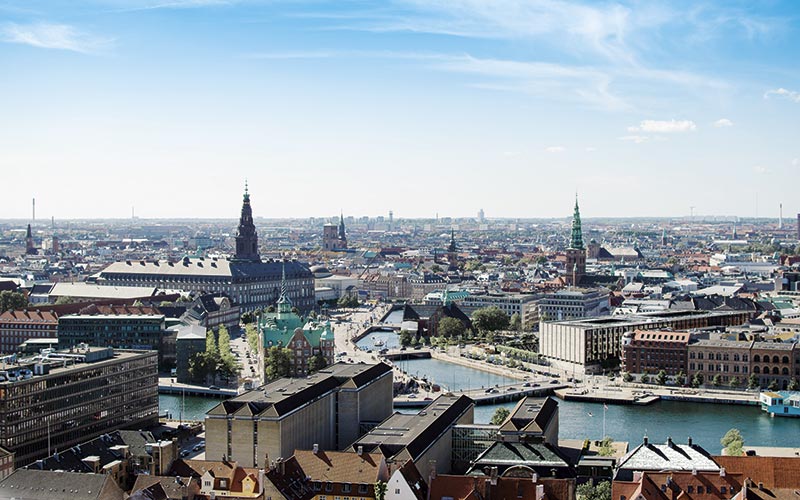
03. August 2020
Data help us to measure and analyse how cities and societies can be designed to become more sustainable. Sustainability includes three important aspects: social, economic, and environmental. Hence, the question for a society is how to address these aspects in a fast, expedient, and economic way. Martin Brynskov, Associate professor and director at Center for Digital Transformation in Cities and Communities (DITCOM) at Aarhus University and president of the Danish standardization committee for Smart Cities, believes that digitalization is the answer:
- With digitalization and data we are, for example, able to make some really efficient energy companies that can be optimized in step with the development. Regarding traffic, we are able to accurately measure and analyse when the highest and lowest environmental pressure is, because we are able to update our knowledge every three to five minutes, instead of conducting studies every three to five years. With these data, we can implement early traffic measures in relation to peak load periods and optimize to limit the environmental impact. Time, money, and resources will at the same time be saved for all involved parties. These are just a few examples, and Smart Cities apply to everything from infrastructure to public procurement, explains Martin Brynskov.
The architecture of Smart Cities requires that digitalization and data cut across all sectors, bringing about completely new problems for societies because of the way we have designed them in groups of institutions, sectors, departments, physical spaces etc. The Danish guide, Dansk Smart City-guide for kommuner, virksomheder og andre aktører (Danish Smart City guide for municipalities, companies, and other operators), provides guidance on how societies, municipalities and companies should design and organise their digitalization and data.
We need a new structure with a holistic approach to management of data across silos.
- Already back in 1994, a report (The Dybkjær report) brought this subject up. Now we have reached a point where a new strategy must be taken into use. On the digital side we have come very far, but on the management and administration side we are lagging behind because of the way we think and design our societies. We must have a common approach to data to ensure that we utilize data optimally across all areas, says Martin Brynskov.
The Danish guide will be a concrete tool for municipalities and companies for how they can use data across silos in a secure and ethically correct way and thereby ensure a better application of data in the entire society. Accordingly, it is a must for municipalities and companies to use common standards for the data platforms and digital services they use.
- The guide becomes a practical help for SMEs and municipalities in relation to various procurement and IT systems, so they know what they should set out in their invitation to tender, including the strategy they should apply to the technical systems. For companies that participate in public tenders it can often seem complicated to communicate with and deliver to municipalities. In this connection, the guide is a help for companies, as it provides clear guidelines for standards and recommendations for how and what to deliver to the municipalities. We particularly want to address the SMEs, says Martin Brynskov, and continues:
- It is an important point of the guide that SMEs should have easier access to the municipal market. Standards that outline clear specifications provide a guiding principle/benchmark particularly for SMEs on how they should target their development and use their development resources to deliver to the municipalities. The guide will make the municipal market more available and at the same time be a practical tool for all parties of a tender.
The purpose of the guide is not to develop new Danish standards, but to use the ones that already exist and gather the Danish Smart City players and together set the guidelines for the minimum standards that should be applied to ensure a robust interoperability in Denmark. The common guidelines are to be used in connection with both tenders and procurement, including the development of new services, which can lead to enhancement of Smart City solutions that are sustainable and can be applied across sectors and municipalities. The guide is expected to be completed in autumn 2020.
The guide is developed by the Danish committee Sustainable societies (S-491) under Danish Standards. The members of the committee are: Gate 21, SEAS-NVE, Aarhus University, Kommunernes Landsforening (Local Government Denmark), Erhvervsstyrelsen (the Danish Business Authority), Deloitte and Force Technology.
If you are interested in hearing more about the development of Smart Cities, or wish to participate in the developing work of the guide, contact Ditte Klint Heede, Consultant at Danish Standards, dkh@ds.dk or call 3996 6242.

